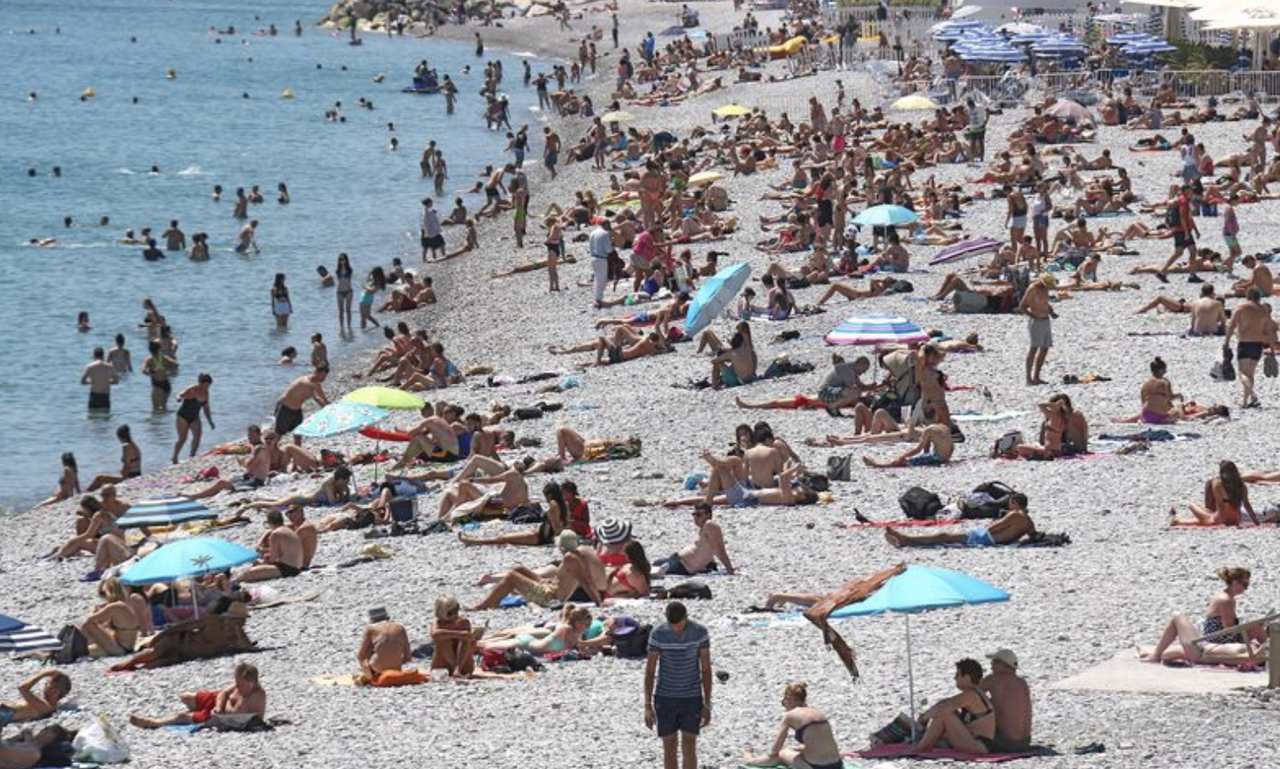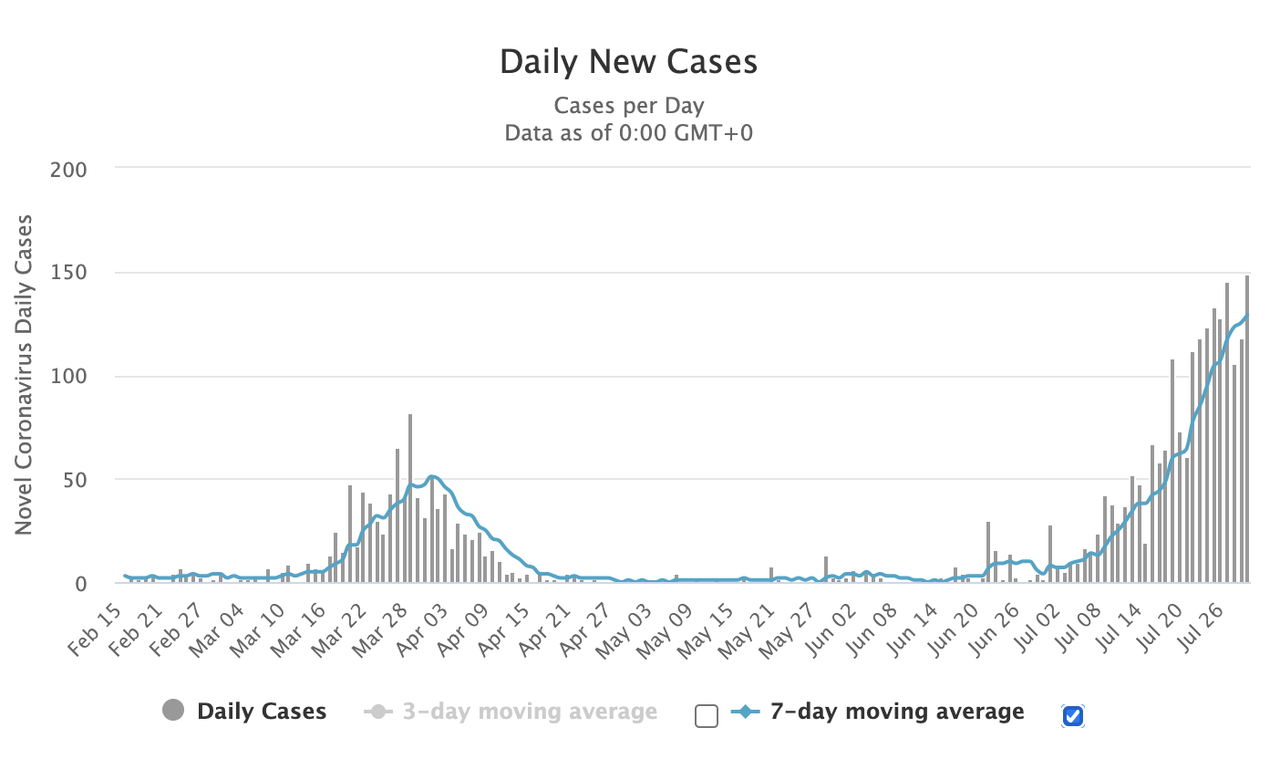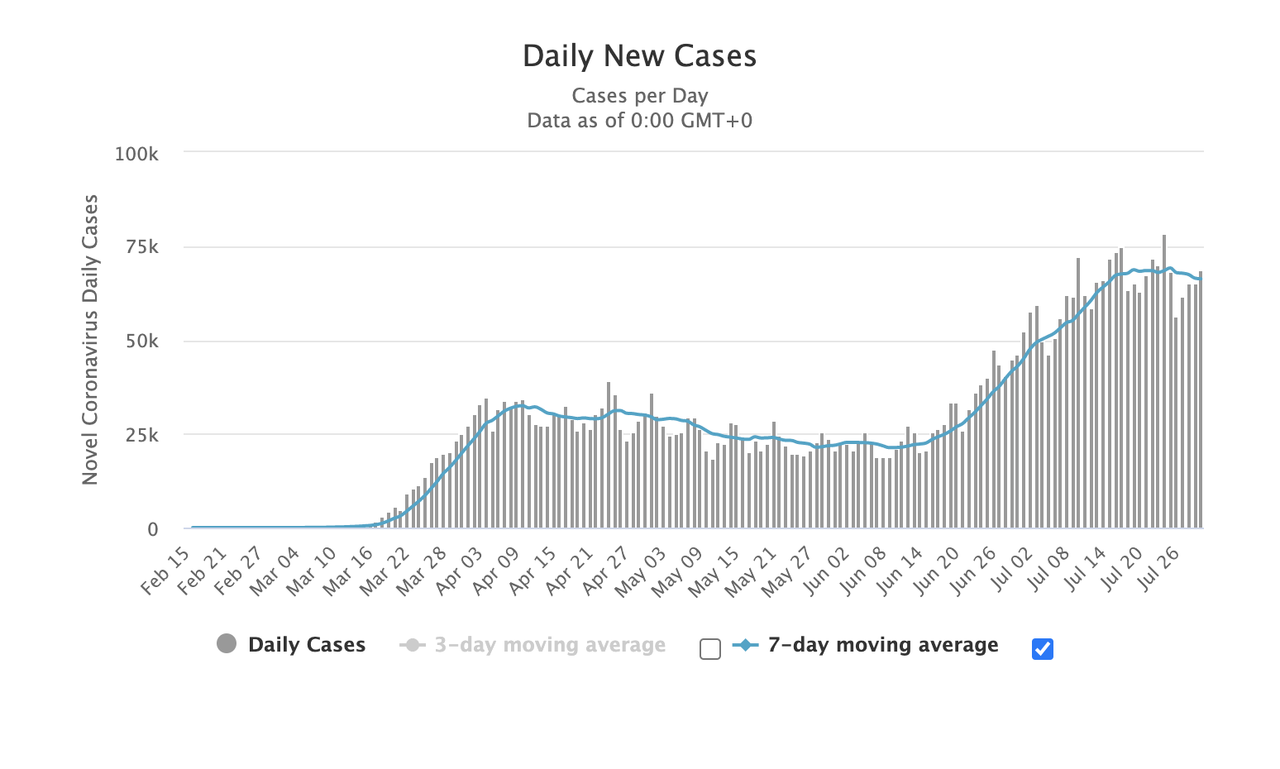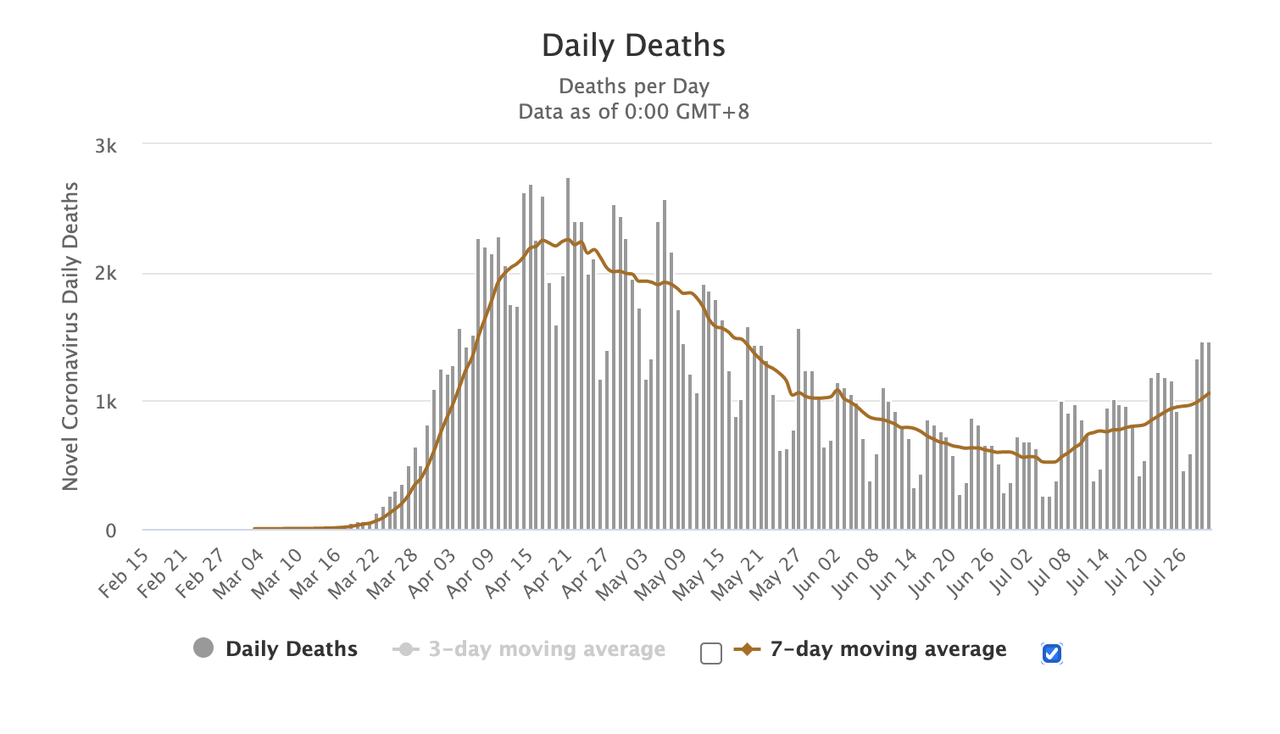‘Partial’ Lockdowns Expand In Europe, New COVID-19 Cases Climb In China, Hong Kong: Live Updates
Tyler Durden
Fri, 07/31/2020 – 08:49
Summary:
- US strikes $2.1 billion deal with GSK, Sanofi
- UK extends ‘partial’ lockdown to 4 million people
- Cases climb in China, HK
- HK cancels September vote
- Australia’s Victoria state sees second-highest daily tally
- Argentina sees record daily jump
* * *
US markets are buzzed off last night’s quartet of big-tech earnings reports that absolutely demolished Wall Street projections (is that really such a surprise?), but signs that the virus is reemerging in Europe and Asia have continued to hector investors, politicians, business-owners and taxpayers alike.
Last night, we reported that UK PM Boris Johnson had ordered a large swath of northern England to return to ‘partial’ lockdown status.
These new ‘partial’ lockdown rules affect 4 million people across the region. If the UK seems a little trigger happy, it’s not without reason: Catalonia is seeing a serious resurgence of COVID-19, prompting local officials to issue new lockdown orders, while several European states issue travel restrictions or advisories targeting Spain, which has prompted the country to grouse about the damage to its tourism industry.
Bloomberg reported Friday that NYC is doomed for a resurgence of the virus in the fall, even as its infection rates continue to fall.
Why is Bloomberg so worried? Well, Melbourne, which has seen infections continue to climb despite strict lockdown measures and other social distancing procedures, is at the epicenter of a resurgence in Australia, which reported
The city has been a success story in combating Covid-19 since March and April, when the pandemic swept through its boroughs killing thousands of people. Yet the strategies that helped suppress the first surge — dropping the infection rate to just 1% statewide — will be tested as cooler weather pushes people together indoors.
[…]
Melbourne, Australia, with 5 million people, offers a case in point. With the Fahrenheit dropping into the 50s, Melbourne has seen an upswing in cases, a foreboding indicator of how tough it may be for cities like New York to control infections as the mercury drops. With fall and winter approaching, it’s “inevitable” Covid-19 cases will tick up, said Ashish Jha, director of Harvard University’s Global Health Institute.
“I am worried about complacency,” Jha said in an interview. “New York went through such a difficult few months, and I am worried that people are tired. A lot of people are looking at New York over the next six months and saying: ‘Could we possibly see a spike?'”
Australia’s second-most populous state reported 627 new cases in the past 24 hours, a day after suffering a record 723 new cases. There were also 8 more deaths. The situation in Victoria has prompted experts to start to question the benefits of mass lockdowns, as such restrictive measures have had little impact on Melbourne’s outbreak.
Hong Kong – which cancelled fall elections – and mainland China are also seeing cases rise: The mainland reported 123 local coronavirus infections for July 30, including 112 in Xinjiang and 11 in Liaoning, according to China’s NHC. 4 cases were also imported. Friday’s total number reported was higher than the 105 new cases reported in the mainland on Thursday.
Finally, Argentina posted a record 6,377 new cases, bringing the country’s total to 185,373. It also reported 130 new deaths, taking the death toll to 3,441.
Across the US, the number of new cases have started to plateau as new cases and the positivity rate across the Sun Belt have both declined (the number of tests carried out across the hardest hit states has also started to decline)…
…while daily deaths continue to creep higher.
COVID-19’s global rebound shows us just how difficult it can be to stop such an infectious virus without sufficient levels of immunity within the population. Former FDA Director Scott Gottlieb once warned that the outbreak should be finished by January no matter what – either it will have run its course, or a vaccine will be made widely available.
Governments around the world have scrambled to strike deals with the companies leading the race for a vaccine, including Moderna, Pfizer, Astrazeneca, GSK and Sanofi, etc. Highly publicized deals have mostly focused on the most advanced vaccine trials: Which is why, after inking a record $2 billion deal with Pfizer, the US government on Friday reportedly signed a similar deal with Sanofi and GSK, mirroring a deal between the UK and the UK-based drug makers announced earlier this week.
The money comes via “Operation Warp Speed”, the Trump Administration program to simply throw money at vaccine candidates. the US will pay $2.1 billion to secure 100 million doses while supporting manufacturing and the expensive clinical trials. Here’s more on that from BBG:
The Trump administration will provide as much as $2.1 billion to Covid-19 vaccine partners Sanofi and GlaxoSmithKline Plc, the biggest U.S. investment yet in fast-tracking shots and snapping up supplies.
Part of Operation Warp Speed, the funding will support clinical trials and manufacturing while allowing the U.S. to secure 100 million doses of the shot, if it’s successful, the companies said Friday. The country has an option to receive an additional 500 million doses longer term.
Glaxo shares traded 0.6% higher in London, with Sanofi up 1.3% in Paris.
The deal follows billions of dollars of U.S. commitments to other experimental vaccines – all still needing to show their effectiveness in testing – and may stoke concerns that other countries will be left behind. Vaccines are seen as the key to leading the world out of the pandemic that has killed about 675,000 people in a matter of months.
Like with the Pfizer deal, the US has an option to receive an additional 500 million doses longer term if the vaccine works out.
via ZeroHedge News https://ift.tt/31buhBM Tyler Durden



